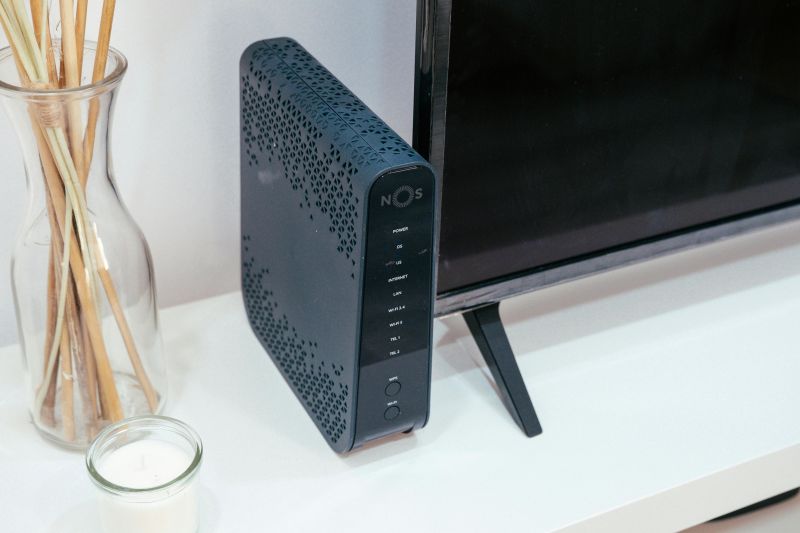Click here to get this post in PDF
Brand new research from business technology provider FLR Spectron reveals the UK’s biggest broadband black spots. These areas with slow internet speeds aren’t just an inconvenience, but a real risk to business security, as poor connectivity can leave companies exposed to cyberattacks and costly disruptions.
The UK’s Broadband Black Spots: Where Businesses Are More Prone to Cyber Attacks
FLR’s analysis of median broadband speeds and leading providers across the UK’s 100 largest towns and cities reveals a stark digital divide:
| Rank | Location | Median Speed (Mbps) | Leading Provider |
| 1 | Wrexham | 33 | Plusnet |
| 2 | Luton | 36 | Virgin Media |
| 3 | York | 44 | BT |
| 4 | Winchester | 49 | TalkTalk |
| 5 | Eastbourne | 50 | BT |
| 6 | Chichester | 52 | BT |
| 7 | Canterbury | 54 | BT |
| 8 | Hastings | 55 | Sky Broadband |
| 9 | Havant | 56 | Sky Broadband |
| 10 | Aberdeen | 56 | BT |
Wrexham, whose main Internet provider is Plusnet, suffers the UK’s slowest median speed at just 33Mbps, less than half the national average of 73Mbps. To put that in perspective, downloading a 4K Netflix movie like Adolescence takes over five hours in Wrexham, compared to just 30 minutes in Horsham, the fastest location.
Horsham: The UK’s Broadband Champion
Horsham, a small town in West Sussex, boasts an average speed of 352Mbps – over 11 times faster than Wrexham. This speed allows users to download approximately 2,000 songs in just three minutes. Horsham’s speed outpaces second-place Hull (160Mbps) and third-place Southampton (142Mbps).
London’s Broadband Ranking: Surprisingly Middle of the Pack
Despite generating nearly a quarter of the UK’s GDP, London ranks only 45th with a median speed of 78Mbps, highlighting that even major economic hubs can face broadband challenges.
7 Ways Slow Internet Can Threaten Your Business
Slow broadband can seriously undermine business security and finances:
- Lost Productivity: Employees lose 44 minutes per week due to slow internet-equivalent to a full workweek annually.
- Financial Impact: UK businesses lose an estimated £11 billion yearly, with the average company losing £13,000.
- Customer Service Issues: 34% of businesses report customer dissatisfaction linked to poor connectivity.
- Cybersecurity Risks: Delayed updates increase vulnerability to cyberattacks, costing businesses an average of £8,460 per incident.
- Communication Breakdowns: 65% of employees experience dropped calls or meeting interruptions.
- Data Loss Risks: Slow speeds hinder cloud backups and file sharing, risking project delays and reputational damage.
- Compliance Challenges: Poor connectivity can cause missed regulatory deadlines, leading to fines.
The Road Ahead: Fibre Rollout by 2027
The UK is phasing out the ageing copper-based Public Switched Telephone Network (PSTN) by January 31, 2027, replacing it with faster, more reliable fibre optic networks. Businesses and homes still relying on PSTN should upgrade soon to avoid disruption and benefit from improved speeds.
5 Practical Tips to Boost Your Cybersecurity and Internet Performance
- Use a VPN: Encrypt your connection to protect privacy and avoid throttling.
- Update Equipment: Keep software current and replace routers every 3–5 years.
- Switch to Fibre: Upgrade from copper lines to fibre for speed and reliability.
- Set Strong Passwords: Use complex passwords with 14+ characters.
- Train Staff: Regular cybersecurity training helps identify and prevent threats.
In summary, slow broadband is more than an inconvenience – it’s a costly risk to business productivity, customer satisfaction, and cybersecurity. Upgrading your internet connection and adopting best practices is essential to staying competitive and secure in today’s digital economy.
Also read:
7 Common Cybersecurity Mistakes Organizations Make
Exertis Cybersecurity Partners with ShelterZoom to Deliver Next-Gen Document Security

